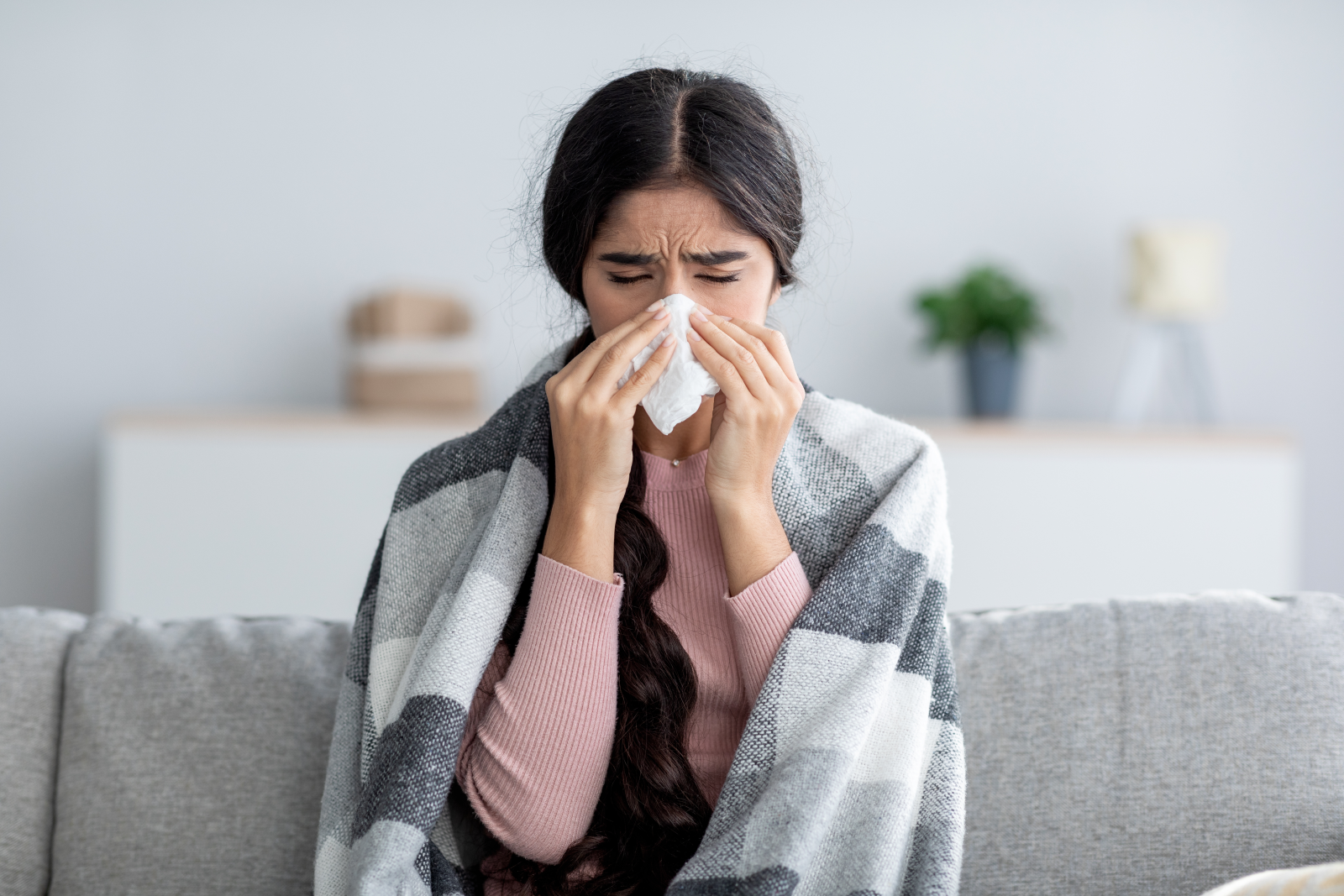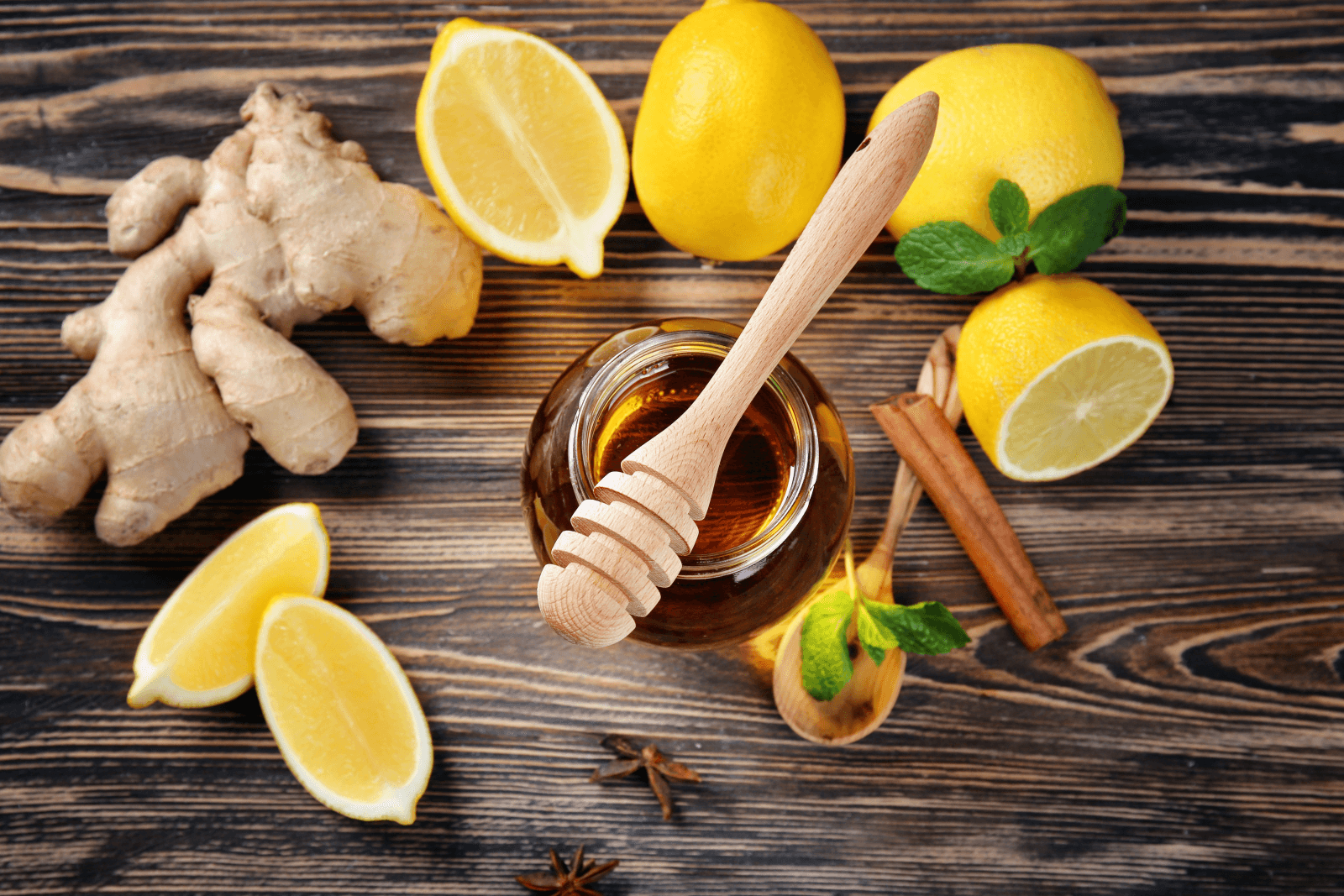When congestion strikes: Wet, chesty cold and cough symptoms and remedies
If you’ve been spending your days coughing up or snorting out phlegm, chances are you are in the throes of a mounting congestion. There are different kinds of congestion though. And each feels and sounds different. A stuffy nose with mucus build up means you have a nasal congestion. If you’re feeling pain or pressure around your forehead, or between the eyes, you have a sinus congestion. A chest congestion however, brings a different level of discomfort. Before you reach for an expectorant to get that cough off your chest, we suggest you examine your symptoms closely first.
What is chest congestion?
A chest congestion is a result of mucus or phlegm building up in your lungs. A chesty cough (or a productive, wet cough) is a natural bodily reflex meant to clear the excess phlegm from your lower airways (bronchi) or your throat.
What are its symptoms?
The production of excess phlegm along with coughing is the most common symptom of a chesty cough. The phlegm produced can vary in colour, from clear or white (normal) to green or yellow (bacterial or viral infection) and sometimes bloodstained (a more serious condition).
Symptoms include:
- Coughing up phlegm – hacking, productive cough
- Wet crackling sounds in your chest and an irritable throat
- Difficulty breathing (full, deep breaths)
- Chest pain or tightness (usually from excessive coughing)
- Fever (less common)

What causes chest cough?
The excess phlegm produced in your lungs is meant to trap dirt or bacteria and fight off infection. This creates the uncomfortable fullness of congestion. The body’s mucus production goes into overdrive due to multiple causes such as a respiratory infection like cold or flu, allergic reactions, airborne irritants or even a heavy, spicy meal.
- The common cold: You’ll experience symptoms like pounding headaches, runny nose, stuffy nose, sore throat, throat pain followed by phlegmy passages and a fullness in your chest. A cold usually makes a chesty cough worse. If these symptoms are prominent, do check out 5 ways to curb a cold faster.
- Bacterial and viral infections: Viral flu, bronchitis from prolonged exposure to air pollutants, or pneumonia create chest congestion and subsequently a wet cough.
- Airborne irritants: Foreign objects lodged in your airways are perceived by your body as a threat which it tries to protect from with phlegm or expel as wet cough. While cigarettes and vape smoke are obvious triggers, fragrances and perfumes, smoke from cooking or any other strong chemical odours also known to induce coughing.
- Environmental or seasonal allergies: Sometimes a wet cough can be caused by environmental allergens such as smoke, dust, pet dander and dust mites, or seasonal ones like pollen.
- COPD (Chronic Obstructive Pulmonary Disease): A series of chronic lung diseases that come about due to long exposure to airborne irritants fall are a significant cause of chesty cough. The consequent production of mucus in the lungs makes it difficult for you to breathe as well.
And, here’s why that cough gets worse at night
Chest cough is accompanied by another common condition – the post-nasal drip. It occurs when mucus from your sinuses or nose drips down the back of your throat. It is often caused by viruses like common cold and flu, sinusitis, hay fever and cold air. Symptoms include:
- Mucus in the throat
- A constant need to clear your throat
- A sore or ticklish throat
- A subsequent intermittent cough

The post-nasal drip tends to aggravate at night simply due to gravity. When you lie down, the mucus running down from your sinuses starts to collect in the back of your throat, causing a disruptive night-time cough. One way to curb this cough is to keep your head elevated with an extra pillow when you lie down.
How to curb that cough
Keep that phlegm from flaring up with these handy household tips:
Stop smoking or vaping: Smoking doesn’t help when you are healing from a chest cough. In fact it irritates your lungs and exacerbates your congestion. Steer clear of it, at least until the phlegm clears. In fact now is a good time to think about quitting for good!
Start hydrating: Staying hydrated, especially with hot water or fluids like non-caffeinated herbal teas and brothy soups can help loosen the mucus and clear your upper airways. Hydrating also helps support your body when you’re feeling sick. Eugica’s Herbal Infusions harness the power of natural ayurvedic herbs to treat flu-like symptoms and relieve coughs.

Use steam therapy or a warm compress: Holding your head over a steaming pot of water and inhaling gently for a few minutes at a time can help clear your sinuses as well as breathing passages, by thinning the mucus further. This will make you cough up the excess gunk in your lungs more easily. In between steam therapy, you could also place a hot water bottle, or a heat pad wrapped in a damp towel, on your chest while you rest.

Gargle salt water: Saltwater gargling is a time-tested home remedy that’s known to ease symptoms of chest cough as well as help sore throats that may occur as part of flu-like symptoms.
Consider over the counter remedies: Over the counter medication that’s age-safe, natural and formulated to ease chest congestion is a good way to speed up your recovery. Its expectorant properties are crucial to treating acute chest coughs but they should be the last resort.

Remember to rest: All that coughing is no doubt going to take up a lot of your energy. So be sure to conserve it by resting well. It doesn’t matter if you’re working from home, you must allow yourself time and space so your body can focus on recovering faster.
If your symptoms persist despite the remedial measures, do consult a trusted local physician to investigate with further medical intervention. Until then, here’s wishing you a speedy recovery!
Tags: Wet cough, wet chesty cough, chest congestion, night cough, cough and cold, productive cough, cough and flu, smokers cough






